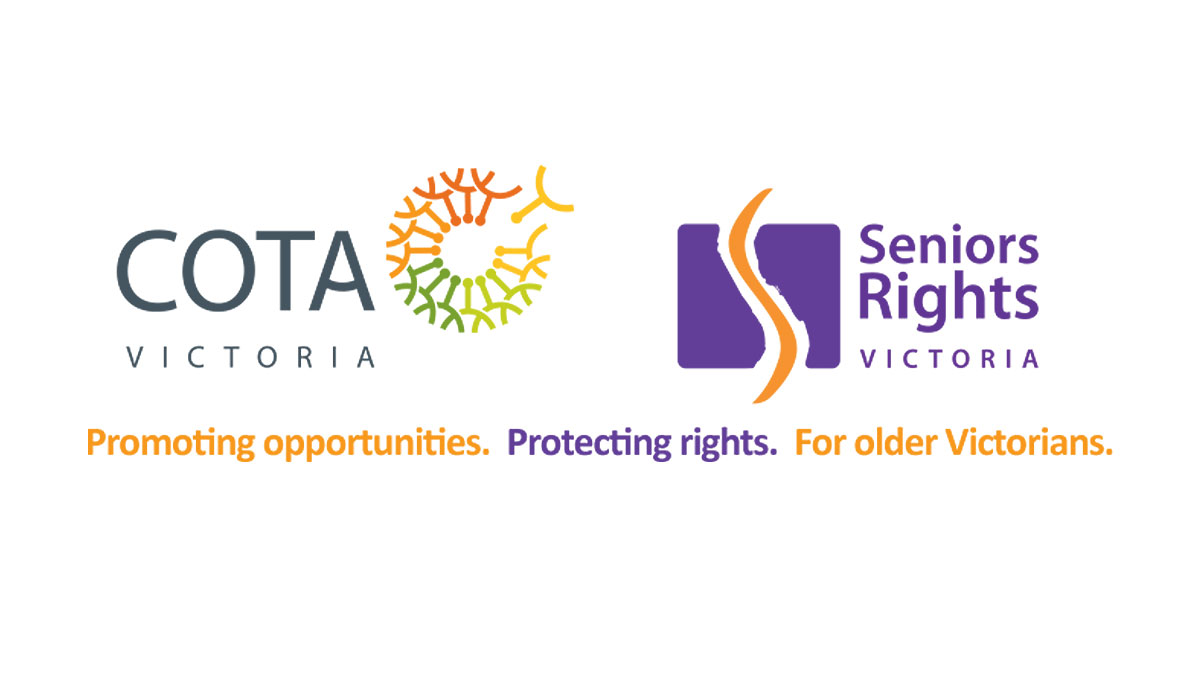Summary of issues impacting on the mental health outcomes of older Victorians and recommendations on how to best support the mental health of older people into the future.
Summary of recommendations
Recommendation 1: The Victorian Government increase investment in peer education programs aimed at:
• Reducing the stigma of mental illness across older population groups.
• Building older peoples’ capacity to identify symptoms of depression and anxiety in themselves and others.
• Increasing the knowledge of existing mental health services across older population groups.
Recommendation 2: The Victorian Government ensure future awareness-raising initiatives include examples of older people seeking help that are relatable to an ageing population.
Recommendation 3: The Victorian Government provide additional funding to support the administration of community based program that address social isolation and loneliness across the ageing population. Targeted funding should be made available to support groups for at risk populations, including older men.
Recommendation 4: The Victorian Government work with Local Councils to ensure new sporting and recreational facilities are flexible enough to accommodate a range of exercise options that are popular amongst seniors.
Recommendation 5: The Victorian Government invest in best practice initiatives that aim to minimise the impact of age-related health conditions.
Recommendation 6: The Victorian Government invest in initiative’s that provide older Victorians with tailored support to help them navigate the housing market and prevent them from falling into a cycle of homelessness.
Recommendation 7: The Victorian Government increase funding for crisis accommodation and affordable housing options for older women.
Recommendation 8: The Royal Commission into Mental Health critically explore the responsiveness of crisis and emergency mental health services to analyse approximate wait times, discharge policies and other matters that may impact on treatment outcomes.
Recommendation 9: The Royal Commission into Mental Health specifically investigate existing service barriers arising due to the age eligibility requirements for adult clinical mental health services (up to 64 years of age) and specialist older persons’ services (over 65 years).
Recommendation 10: The Victorian Government reform the mental health sector to ensure that mental illness and substance abuse could be dealt with through an integrated service delivery model. This model would involve AOD clinicians being located within community- based mental health services.
Recommendation 11: The Victorian Government work collaboratively with the Commonwealth and other state and territory governments to implement the final recommendations of the 2018 ‘Inquiry into the Accessibility and quality of mental health services in rural and remote Australia’. A core focus of this work should involve the development and implementation of a national rural and remote mental health strategy.
Recommendation 12: The Victorian Government ensure the digital delivery of mental health services is underpinned by a philosophy of universal access by:
• Building GPs’ capacity to facilitate access to digitally delivered mental health services for older Australians, including raising awareness of appropriate programs and alleviating potential concerns.
• Providing practical support, where appropriate, to support older people with low digital inclusion, to use digitally delivered services. This may include spending time with older people to demonstrate how specific online programs work or providing transport to access digital services where these are based in health services.
• Ensuring adequate and appropriate services are available for older Australians who do not want to or are unable to engage in digitally delivered services.
• Funding research to examine the efficacy of Internet mental health treatments for older populations.
Recommendation 13: The Victorian Government implement measures to:
• Build GP and health professionals’ capacity to better understand the mental health needs of older people, including comorbid conditions and how they can facilitate access to appropriate services. This includes building capacity to differentiate between mental illness and dementia.
• Take a leadership role in addressing ageist attitudes and systemic ageism across health services.
Recommendation 14: The Victorian Government ensure clinicians responsible for the prescription or dispensation of mental health related prescriptions take steps to minimise harm to the individual by:
• Exploring other treatment options in addition to, or before considering pharmaceutical intervention.
• Ensuring the prescription of medications is based on an assessment of medications with the best side effect profile and lowest risk of interaction with other medications.
• Ensuring older people are well-informed about any possible side effects or interactions with other drugs.
Recommendation 15: The Victorian Government implement measures to support mental health services to introduce a life stage approach to support people across the life span, particularly at key transition points, to ensure a nuanced approach to mental health. For the older cohort, such transition points might include retirement or loss of employment, loss of a partner, entry into the aged care system and loss of ability to live independently.
Recommendation 16: The Victorian Government work with the Commonwealth Department of Health to discuss options for integrating mental health assessments into all aged care assessment and review processes.
Recommendation 17: The Victorian Government support mental health services to provide an integrated and holistic approach to service delivery, to support older people with the range of comorbid mental and physical health needs that they may experience.
Recommendation 18: The Victorian Government work with Commonwealth and local governments to support mental health services to improve collaboration between health and allied services that support older Australians, including general health, mental health, residential and community aged care, local government organisations and carer support services. This includes implementing a person-centred approach to collaboration which places the best interests of the individual at the centre of service planning and delivery, including transitions between services.
